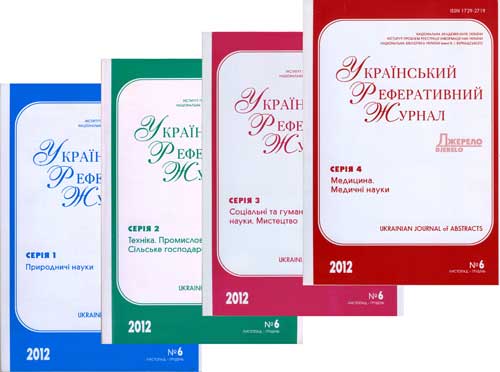РЕФЕРАТИВНА БАЗА ДАНИХ "УКРАЇНІКА НАУКОВА"
Abstract database «Ukrainica Scientific»
Бази даних
Реферативна база даних - результати пошуку
|
|
Пошуковий запит: (<.>ID=REF-0000788282<.>) | |||
|
Загальна кількість знайдених документів : 1 |
|||
Liuta O. Student survey as a tool for quality assurance in higher education: the case of Ukrainian university = Опитування студентів як інструмент забезпечення якості вищої освіти: приклад українського університету / O. Liuta, S. Lieonov, A. Artyukhov, M. Sushko-Bezdenezhnykh, O. Dluhopolskyi // Наук. вісн. Нац. гірн. ун-ту. - 2021. - № 4. - С. 158-164. - Бібліогр.: 20 назв. - англ. Purpose. To determine the level of students' interest in internal quality assurance, particularly in passing the survey and changing the teaching quality level and improving teachers' pedagogical skills. Methodology. For the data collection, a questionnaire was used which included closed-end questions on the quality of teaching and open questions in terms of comments and recommendations of higher education students on the quality of teaching and several questions concerning the share of classes in the discipline attended by the students, ECTS scores, received by students from the relevant disciplines and the average score for the entire period of study. Findings. Sumy State University (SSU) introduced an online survey of students as the main consumers of educational services regarding the quality of teaching disciplines. Over the last 3 academic years, there has been an increase in the number of teachers whose activities are evaluated by students. There has been an increase in the number of teachers who, according to students, show excellence in teaching, which is a positive trend. If in the 2017 - 2018 academic year the number of such teachers in SSU was 57 people, then in the 2019 - 2020 academic year, it increased by 35 % to 77 people. Quality level "Above average" was determined for 120 teachers in the 2017 - 2018 academic year, and in the 2019 - 2020 academic year, their number increased by 30 % and amounted to 156 people. It is noteworthy that in the 2019 - 2020 academic year compared to 2017 - 2018, there is a reduction in the number of teachers from 71 to 66 people (7 %), who demonstrated the level of teaching "Low". Originality. Survey of students on the quality of teaching educational components, on the one hand, allows monitoring students' satisfaction with methods used by the teacher in training and communicating with students, and on the other hand, it is a method to control the institution's authority over the educational service quality and the HEI's mission implementation. It also indicates an increase in students' interest in participating in higher education's internal quality assurance. An important factor influencing the positive dynamics of the teaching quality level is that each semester teachers receive a detailed analysis of students' answers with a visual display for each questionnaire, as well as their comments and suggestions for teaching the relevant discipline through the information service "Personal teacher's office" based on the results of the survey. Practical value. According to the analysis results of the received information, managerial decisions can be developed and implemented to improve the content and practice of educational components' implementation, improving the professional skills of research and teaching staff, advancement of best pedagogical practices. Індекс рубрикатора НБУВ: Ч481.42 + Ч484(4Укр)711 Рубрики: Шифр НБУВ: Ж16377 Пошук видання у каталогах НБУВ Додаткова інформація про автора(ів) публікації: (cписок формується автоматично, до списку можуть бути включені персоналії з подібними іменами або однофамільці)
| |||
| Національна бібліотека України імені В. І. Вернадського |
 |
| Відділ наукового формування національних реферативних ресурсів |
 |
| Інститут проблем реєстрації інформації НАН України |
Всі права захищені © Національна бібліотека України імені В. І. Вернадського